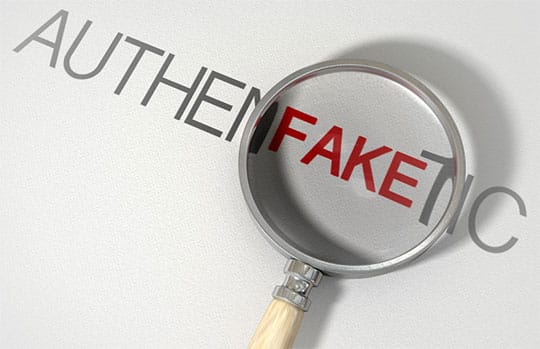Companies can sell their products and services across the web courtesy of digital marketing. This tremendous technological tool presents a world of possibilities which were unheard of during the analog era. While social media tools help to improve professional networking and product promotions, they also present possible risks such as damaging of professional image and conveying poor quality information. Nevertheless, there are ways in which organizations can prevent these potential risks. For this matter, the internet should be used appropriately.
The commonly used social media tools
If you open a business today and want the world to know about it, digital marketing would be your fabric of dreams. You never know, you might rank number one in the charts. Social media is basically internet-based platforms which facilitate communication and information sharing. Social networking sites offer a plethora of features, and they include:
- Knowledge aggregation, e.g., Wikipedia.
- Professional networks, e.g., LinkedIn.
- Social networks, e.g., Twitter, Facebook, Google Plus, and Myspace.
- Content production sites, e.g., blogs and Tumblr.
- Media sharing platforms, e.g., Flickr and YouTube.
- Gaming and virtual reality environments, e.g., Second Life.

How is the internet misused?
 i) The scramble for ‘likes’: Since everyone has gone digital, the internet has become a battle for likes. If customers have had a worthy experience with a particular brand, they will obviously like it on Facebook. This sounds obvious. However, some marketers use the likes as justification for the digital marketing strategy of a company. Sometimes, the likes may have absolutely nothing to do with the strategy.
i) The scramble for ‘likes’: Since everyone has gone digital, the internet has become a battle for likes. If customers have had a worthy experience with a particular brand, they will obviously like it on Facebook. This sounds obvious. However, some marketers use the likes as justification for the digital marketing strategy of a company. Sometimes, the likes may have absolutely nothing to do with the strategy.
 ii) Buying followers: Apparently, the number of followers is more highly regarded than the quality of those followers. A lot of online businesses buy off newbies from social networks like Twitter. It is all about looking famous. What they forget is that Facebook or Twitter is not a popularity contest and that the quality of followers is more valuable than their quantity. Companies must not buy followers for the following reasons:
ii) Buying followers: Apparently, the number of followers is more highly regarded than the quality of those followers. A lot of online businesses buy off newbies from social networks like Twitter. It is all about looking famous. What they forget is that Facebook or Twitter is not a popularity contest and that the quality of followers is more valuable than their quantity. Companies must not buy followers for the following reasons:
- Most of the bought followers are fake accounts.
- These people will never become real clients or customers.
- Buying real followers costs a lot of money, but it is never a guarantee that they will show interest in a company’s products. They might actually ‘unfollow’ afterward.
 iii) Paying for comments: This is a common practice whereby businesses pay for tweets, blogs, and Facebook comments. The problem with this strategy is that the paid individuals could disclose some critical information about a company and end up tarnishing its name. In turn, the company will lose credibility and customer trust.
iii) Paying for comments: This is a common practice whereby businesses pay for tweets, blogs, and Facebook comments. The problem with this strategy is that the paid individuals could disclose some critical information about a company and end up tarnishing its name. In turn, the company will lose credibility and customer trust.

 iv) Fake customer reviews: A lot of customers express their opinions about products through online reviews. Some businesses are very conscious about bad reviews; thus, they end up posting fake customer testimonials on their websites through some aliases. It should be known that this practice is illegal and a company can be banned from certain sites if found guilty. Ethically, fraudulent customer reviews are wrong because they give exaggerated images of the business. If people discover you have been using fake reviews, you might lose in the end and lack customers. So, instead of worrying about negative testimonials, you should do the following:
iv) Fake customer reviews: A lot of customers express their opinions about products through online reviews. Some businesses are very conscious about bad reviews; thus, they end up posting fake customer testimonials on their websites through some aliases. It should be known that this practice is illegal and a company can be banned from certain sites if found guilty. Ethically, fraudulent customer reviews are wrong because they give exaggerated images of the business. If people discover you have been using fake reviews, you might lose in the end and lack customers. So, instead of worrying about negative testimonials, you should do the following:
- Resolve any conflicts from customers offline.
- Respond intelligently to negative reviews and give effective solutions.
- Do not delete any negative review as it will raise eyebrows. Be polite as you resolve the issue.
Final Words
Digital marketing should be used for communication and creation of mutually advantageous relationships. So, do not indulge yourself in the above social media malpractices.
This article is written by Jessa Camacho. She is part of the marketing team of ConvertBetter, and she has a good grasp of all the essentials of building and promoting a website. Her skills and knowledge in her field make her prominent in the company.
 This article is written by Jessa Camacho. She is part of the marketing team of
This article is written by Jessa Camacho. She is part of the marketing team of 


